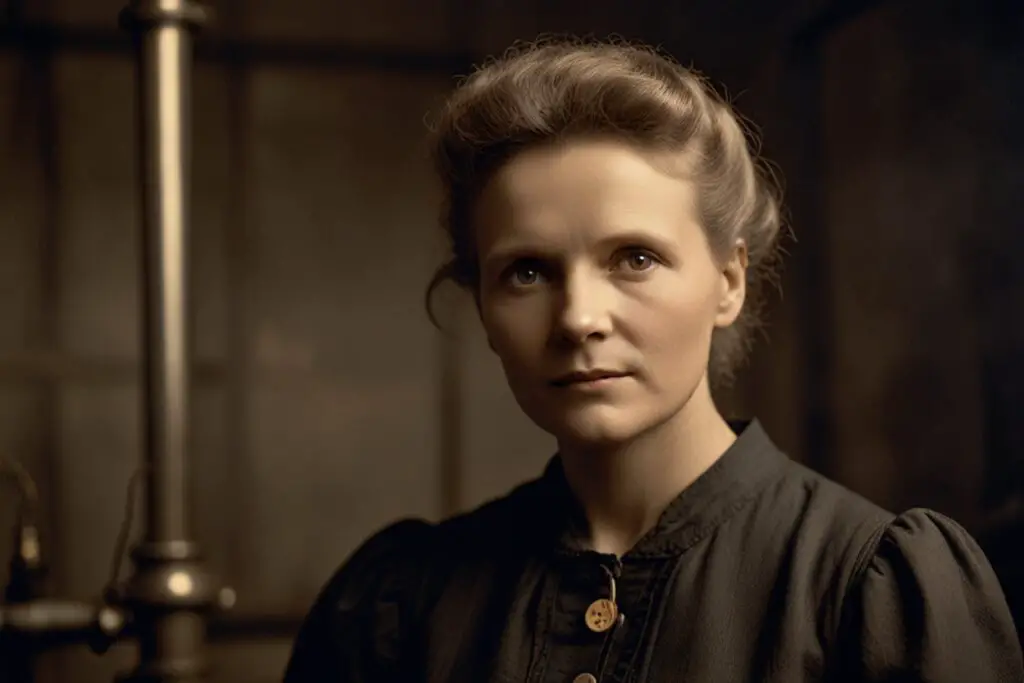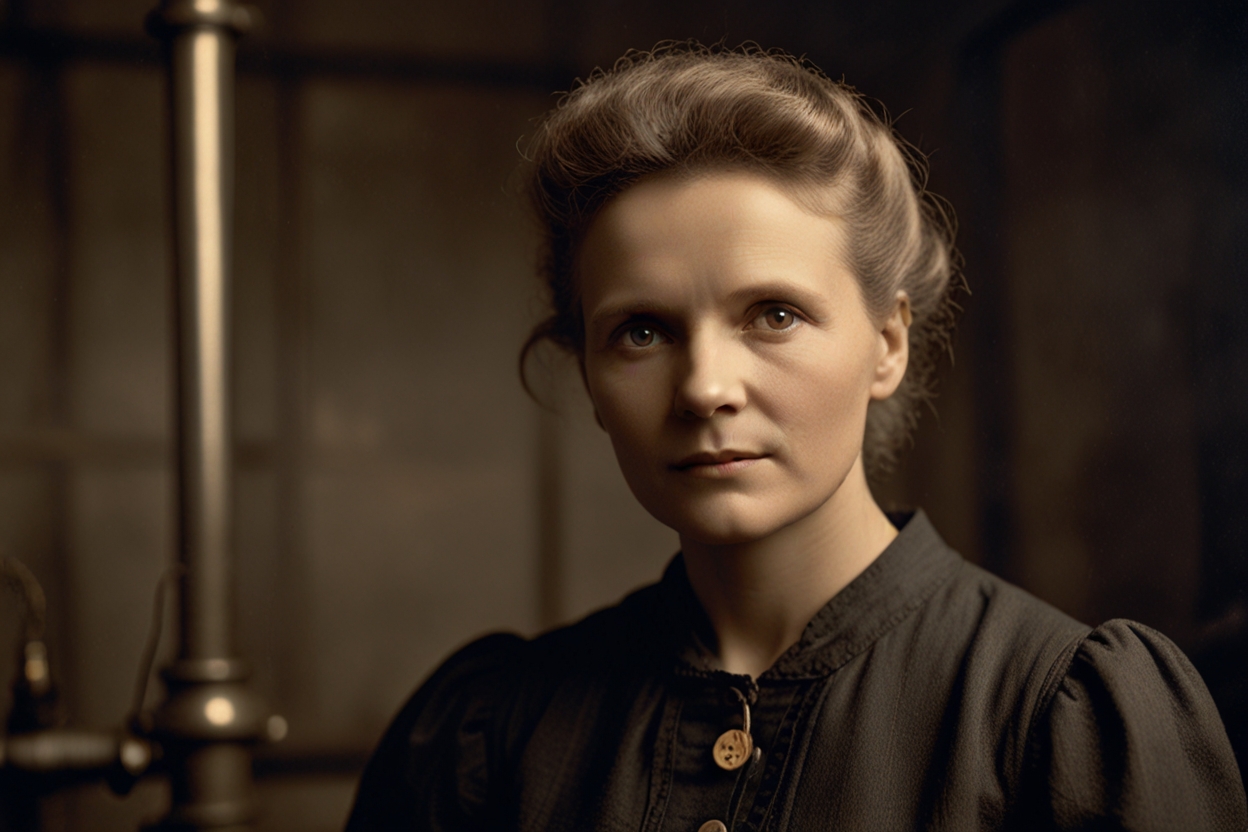
Marie Curie, a Polish-born physicist and chemist, is one of the most renowned scientists in history.
Her groundbreaking discoveries in the field of radioactivity have had a lasting impact on the world of science and beyond.
In this article, we will delve into the life and achievements of Marie Curie, exploring her most significant discoveries and the legacy she left behind.
Who was Marie Curie?
Marie Curie, born Maria Skłodowska in 1867, Warsaw, Poland, was the daughter of a teacher.
Her early passion for science was nurtured by her father’s guidance.
Pursuing higher education at the Sorbonne in Paris, she met her future husband, Pierre Curie.
Together, they delved into the study of radioactivity, pioneering groundbreaking research.
Marie Curie’s dedication and discoveries in radioactivity earned her worldwide recognition, shaping the course of scientific progress.
Her legacy as a trailblazing scientist continues to inspire generations.
- Read also: What Did Albert Einstein Invent? 6 Einstein’s Inventions For The World
- Read also: Top 5 Nikola Tesla’s Inventions List That Changed The World

Groundbreaking Discoveries
Marie Curie’s contributions to science are marked by two groundbreaking discoveries that fundamentally reshaped our understanding of the atom and matter:
Discovery of radioactivity
In 1896, while conducting research on a mineral known as pitchblende, Curie stumbled upon a remarkable phenomenon: radioactivity.
This phenomenon involves the spontaneous emission of particles and energy from the nucleus of an atom.
At the time of her discovery, radioactivity was entirely unknown to the scientific community, making Curie’s revelation nothing short of revolutionary.
Her pioneering work in this area laid the foundation for the field of nuclear physics and paved the way for countless advancements in medicine, industry, and energy production.
New elements: Polonium and Radium
Building upon her discovery of radioactivity, Curie embarked on further research that ultimately led to the isolation of two new elements: polonium and radium.
Polonium, named in honor of her native Poland, and radium, a highly radioactive element surpassing even uranium in its potency, were the fruits of Curie’s laborious and innovative efforts.
The process of isolating these elements was not without its challenges, requiring Curie to develop novel techniques and methodologies to separate them from the complex mixtures in which they were found.
Her perseverance and ingenuity in the face of these obstacles exemplify her unparalleled dedication to scientific inquiry.

The Legacy of Marie Curie
Marie Curie’s legacy is as profound as it is diverse, leaving an indelible mark on both the scientific community and society at large.
Here’s a closer look at her enduring impact:
Nobel prizes
Marie Curie’s groundbreaking achievements made her the first woman to be awarded a Nobel Prize.
In 1903, she shared the Nobel Prize in Physics with her husband, Pierre Curie, and Henri Becquerel for their pioneering work on radioactivity.
Remarkably, she later received a second Nobel Prize in Chemistry in 1911, recognizing her isolation and exploration of radium and polonium.
These accolades not only recognized her exceptional scientific contributions but also broke down barriers for women in academia and beyond.
Medical applications
Curie’s discoveries in radioactivity laid the groundwork for significant advancements in medicine, particularly in the treatment of cancer.
Her research paved the way for radiation therapy, a crucial tool in combating cancerous cells.
By harnessing the power of radiation, medical professionals can precisely target tumors, offering hope and healing to patients worldwide.
Industrial applications
Curie’s scientific breakthroughs extended beyond the realm of medicine, finding practical applications in various industries.
The utilization of radioactive isotopes in manufacturing processes and energy production has revolutionized numerous sectors, enhancing efficiency and driving innovation.
Curie’s work continues to influence industrial practices and fuel technological progress across diverse fields.
Inspiring future generations
Marie Curie’s legacy transcends her scientific achievements, serving as an enduring source of inspiration for generations to come.
As a pioneering woman in STEM, she defied societal norms and blazed a trail for women in science.
Her remarkable journey exemplifies courage, determination, and resilience, inspiring individuals worldwide to pursue their passions and challenge the status quo.
Curie’s legacy continues to empower aspiring scientists, particularly women, to dream big and strive for excellence in their endeavors.

- Read also: Who Discovered the Proton? The History of Atomic Particle Discovered
- Read also: 6 Black Women Inventors Who Changed the World
Conclusion
Marie Curie was a groundbreaking scientist who made significant contributions to our understanding of the atomic structure and the nature of matter.
Her work on radioactivity has had a lasting impact on the world of science and beyond, inspiring generations of scientists to pursue careers in the field.
Her legacy continues to shape the course of scientific research today, and her discoveries remain a testament to her pioneering spirit and dedication to her work.



